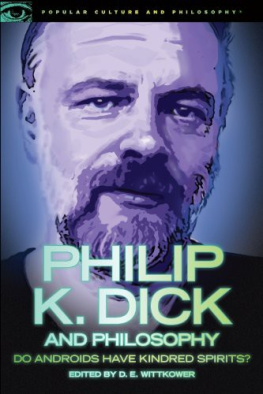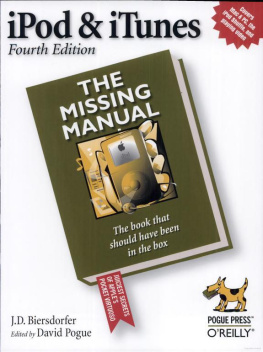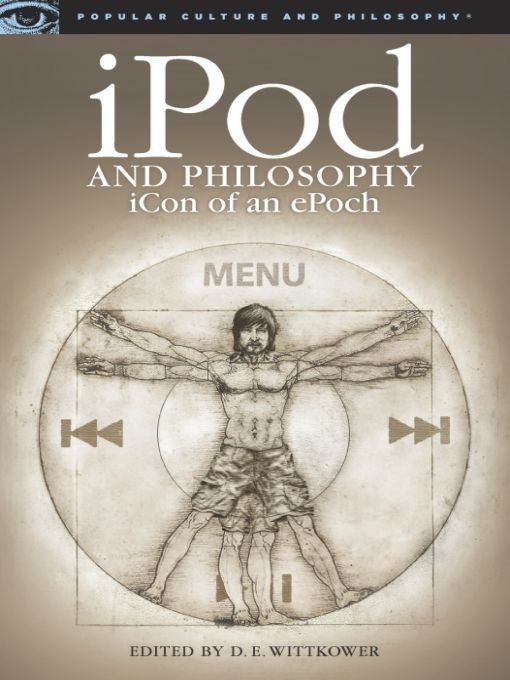Table of Contents
Popular Culture and Philosophy
Series Editor: George A. Reisch
VOLUME 1
Seinfeld and Philosophy: A Book about Everything and Nothing (2000)
VOLUME 2
The Simpsons and Philosophy: The Doh! of Homer (2001)
VOLUME 3
The Matrix and Philosophy: Welcome to the Desert of the Real (2002)
VOLUME 4
Buffy the Vampire Slayer and Philosophy: Fear and Trembling in Sunnydale (2003)
VOLUME 5
The Lord of the Rings and Philosophy: One Book to Rule Them All (2003)
VOLUME 6
Baseball and Philosophy: Thinking Outside the Batters Box (2004)
VOLUME 7
The Sopranos and Philosophy: I Kill Therefore I Am (2004)
VOLUME 8
Woody Allen and Philosophy: You Mean My Whole Fallacy Is Wrong? (2004)
VOLUME 9
Harry Potter and Philosophy: If Aristotle Ran Hogwarts (2004)
VOLUME 10
Mel Gibsons Passion and Philosophy: The Cross, the Questions, the Controversy (2004)
VOLUME 11
More Matrix and Philosophy: Revolutions and Reloaded Decoded (2005)
VOLUME 12
Star Wars and Philosophy: More Powerful than You Can Possibly Imagine (2005)
VOLUME 13
Superheroes and Philosophy: Truth, Justice, and the Socratic Way (2005)
VOLUME 14
The Atkins Diet and Philosophy: Chewing the Fat with Kant and Nietzsche (2005)
VOLUME 15
The Chronicles of Narnia and Philosophy: The Lion, the Witch, and the Worldview (2005)
VOLUME 16
Hip Hop and Philosophy: Rhyme 2 Reason (2005)
VOLUME 17
Bob Dylan and Philosophy: Its Alright Ma (Im Only Thinking) (2006)
VOLUME 18
Harley-Davidson and Philosophy: Full-Throttle Aristotle (2006) Edited by Bernard E. Rollin, Carolyn M. Gray, Kerri Mommer, and Cynthia Pineo
VOLUME 19
Monty Python and Philosophy: Nudge Nudge, Think Think! (2006) Edited by Gary L. Hardcastle and George A Reisch
VOLUME 20
Poker and Philosophy: Pocket Rockets and Philosopher Kings (2006) Edited by Eric Bronson
VOLUME 21
U2 and Philosophy: How to Decipher an Atomic Band (2006) Edited by Mark A. Wrathall
VOLUME 22
The Undead and Philosophy: Chicken Soup for the Soulless (2006) Edited by Richard Greene and K. Silem Mohammad
VOLUME 23
James Bond and Philosophy: Questions Are Forever (2006) Edited by James B. South and Jacob M. Held
VOLUME 24
Bullshit and Philosophy: Guaranteed to Get Perfect Results Every Time (2006) Edited by Gary L. Hardcastle and George A. Reisch
VOLUME 25
The Beatles and Philosophy: Nothing You Can Think that Cant Be Thunk (2006) Edited by Michael Baur and Steven Baur
VOLUME 26
South Park and Philosophy: Bigger, Longer, and More Penetrating (2007) Edited by Richard Hanley
VOLUME 27
Hitchcock and Philosophy: Dial M for Metaphysics (2007) Edited by David Baggett and William A. Drumin
VOLUME 28
The Grateful Dead and Philosophy: Getting High Minded about Love and Haight (2007) Edited by Steven Gimbel
VOLUME 29
Quentin Tarantino and Philosophy: How to Philosophize with a Pair of Pliers and a Blowtorch (2007) Edited by Richard Greene and K. Silem Mohammad
VOLUME 30
Pink Floyd and Philosophy: Careful with that Axiom, Eugene! (2007) Edited by George A. Reisch
VOLUME 31
Johnny Cash and Philosophy: The Burning Ring of Truth (2008) Edited by John Huss and David Werther
VOLUME 32
Bruce Springsteen and Philosophy: Darkness on the Edge of Truth (2008) Edited by Randall E. Auxier and Doug Anderson
VOLUME 33
Battlestar Galactica and Philosophy: Mission Accomplished or Mission Frakked Up? (2008) Edited by Josef Steiff and Tristan D. Tamplin
VOLUME 34 iPod and Philosophy: iCon of an ePoch (2008) Edited by D.E. Wittkower
VOLUME 35
Star Trek and Philosophy: The Wrath of Kant (2008) Edited by Jason T. Eberl and Kevin S. Decker
IN PREPARATION:
The Legend of Zelda and Philosophy (2008) Edited by Luke Cuddy
The Wizard of Oz and Philosophy (2008) Edited by Randall E. Auxier and Phil Seng
Jimmy Buffett and Philosophy (2009) Edited by Erin McKenna and Scott L. Pratt
Stephen Colbert and Philosophy (2009) Edited by Aaron Allen Schiller
Radiohead and Philosophy (2009) Edited by Brandon Forbes and George A. Reisch
The Golden Compass and Philosophy (2009) Edited by Richard Greene and Rachel Robison
To The Decemberists, Erin McKeown, Jonathan Coulton,
The Go! Team, Iron and Wine, Andrew Bird,
The Magnetic Fields, Rilo Kiley, The Weakerthans,
Neutral Milk Hotel, The Postal Service, The Mountain Goats,
and everybody else who helped me put this book together
What Do We Hear when We Listen to Our iPods?
D.E. WITTKOWER
Every night, as I go to sleep, my catthe distinguished gentleman from Tennessee, Wallace Beauford Neelygazes intently out the window. Sometimes he sees something. He perks up, his ears forward, intent. I stare out the window, uncomprehending, seeing nothing but trees under the streetlight. He sniffs at my face, also uncomprehending.
What is it that Wallace is seeing? What interests him so? I havent the faintest idea. I might imagine its a bird, or another catthe enemy!but thats not based on anything Ive seen, only on my imagining of what he might care about.
On the other hand, when I get ready to go on campus in the morning, NPR is blasting out of my clock radio, so that I can hear Rene Montagne and Steve Inskeep from down the hall in the kitchen, and Wallace curls up next to the radio! His senses are clearly sharper than mineexcept his common sense, as attested to by his attempts to jump on things just a bit too far away, and his obvious hatred for writing implements of any form. (String and wires are also suspect.) Yet, he seems perfectly willing to sleep quite close to the radio.
Now, Im sure that youd be glad to hear much more about my wonderful cat, but I suppose I ought to get to some kind of point anyway. The point is this: hearing is a far more particular and selective thing than we generally recognize. Consider these sounds: A whistling of the wind through leafless branches. A distant owl call. A rustling of a bush, behind you.
The rustling has a different character than the rest; and the rest only have a meaningful quality to them since we expect that they lead up to that rustling. The rustling is the appearance of a face: it is the sudden appearance of an other. When we realize that another is there, with us, the world is sucked away from us; reoriented towards this foreign and unknown viewer. What has he seen? What were we doing? Where is he now?
This is, at least, the view put forth by Jean-Paul Sartre in












